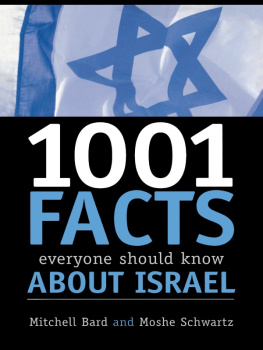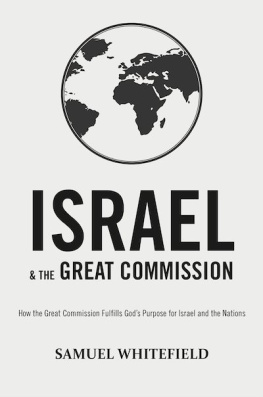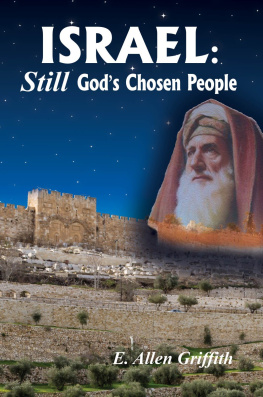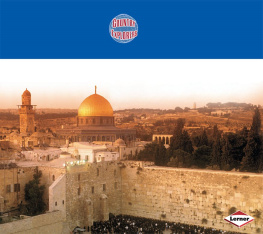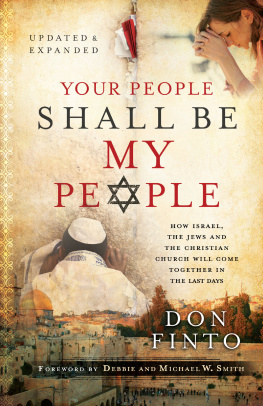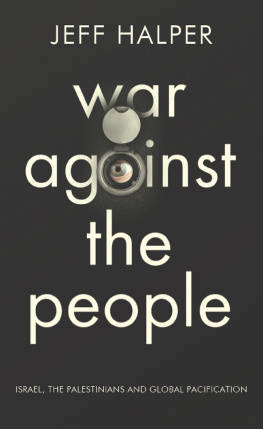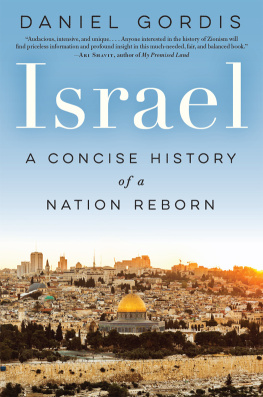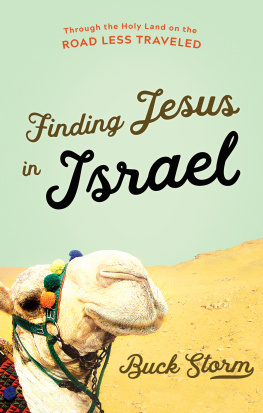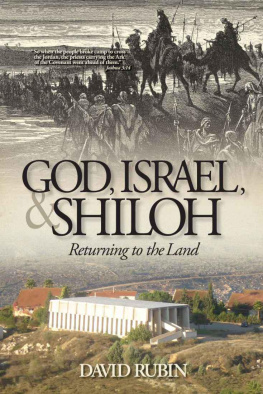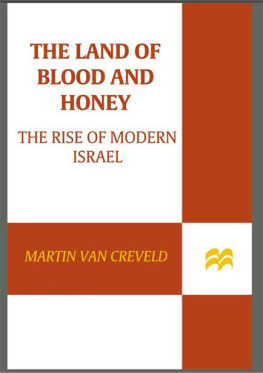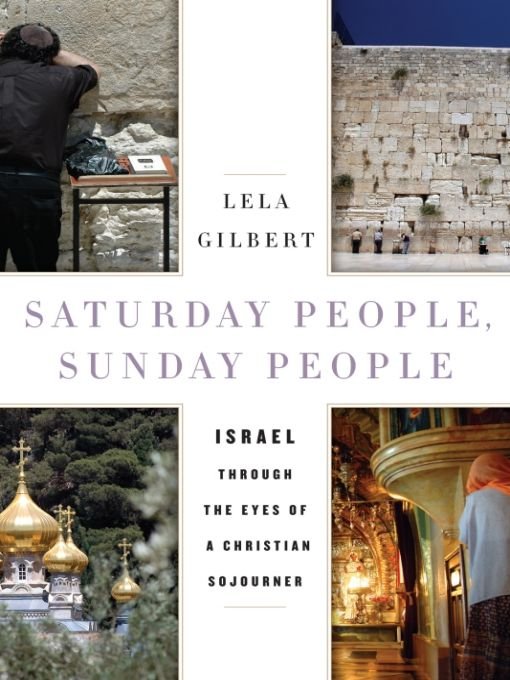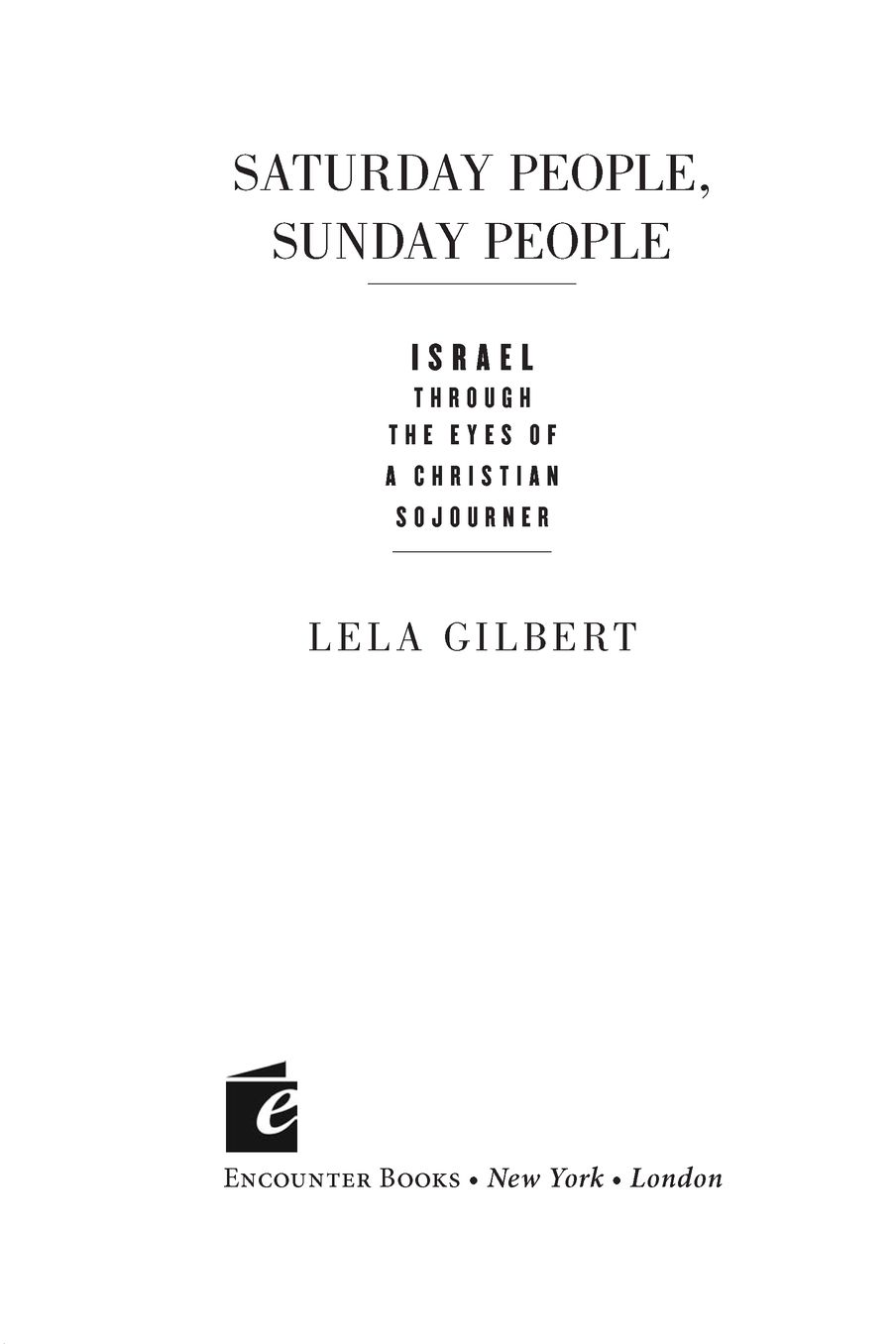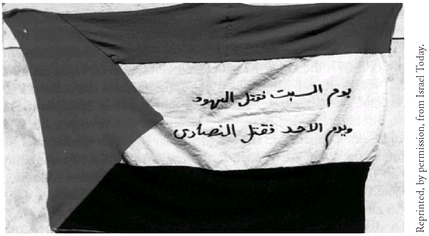Table of Contents
For my father, Caryle Keith Hamner,
In his memory and in gratitude for his faith.
A flag displayed at an anti-Israel demonstration during the First Intifada. Reiterating an oft-repeated slogan of radical Muslims, the Arabic text reads, On Saturday we kill the Jews. On Sunday we kill the Christians.
PROLOGUE
The view from the King David Hotels terrace is one of the most memorable in Jerusalem. In the foreground, flags snap in the wind, and just beyond the aquamarine pool and manicured garden is a sweeping panorama of the Old City, one of the worlds most historic landmarks. In late afternoon, the limestone walls are bathed in Jerusalems famous rose-gold light, contrasting pale limestone against a sapphire sky. Late in the day, a breeze often accompanies the first hints of sunset.
On just such an afternoon one September day, some American friends and I were sharing a bottle of wine on the terrace and catching up on life. Although Id been seated at that same table many times before, the view still filled me with wonder. Somewhere in the distance church bells were ringing. Birds chirped, a siren whined and a muezzin called the Muslim faithful to a faraway mosque. Our conversation stopped as we absorbed these breathtaking moments.
Suddenly, one of the men turned toward me, and his familiar questions shattered the spell. So, Lela, why are you in Jerusalem? What exactly are you doing here?
Those are fair questions. My friends and relatives know that Im a Southern California native, and that my two 30-something sons, my daughter-in-law and my grandson still live there. And they know that Im not Jewish. Theres every reason to inquire. Yet each time it happens, I feel a little perplexed. On the one hand, Israel now feels very much like home. On the other hand, it really isnt. So I always start by trying to explain why I traveled to the Holy Land in the first place.
For one thing, I came to fulfill a personal aspirationit had been my fathers dream to visit Israel before he died. He didnt make it, but I had long shared his fascination with the place. So I came on my own, and in his memory.
And I came to gain perspective and understanding. Ive worked for years on books about both Christianity and Islam. Israel is the only place in the Middle East where Christians, Jews and Muslims live more or less side-by-side, shop in the same stores, eat in the same cafes and share the same streets and sidewalks. I imagined that living in a country where these religious groups were representedeven amidst tension and occasional terrorwould give me a more intimate and direct experience of that reality.
And I came on a pilgrimage. The holy places of Judaism and Christianity represent road signs and revelations in my own spiritual journey. I suppose I wanted to find out if Jerusalems air still glimmered with traces of ancient glory, if only now and then.
Its true that these purposes continue to enliven my days, but all of them might well have been fulfilled in a few weeks time. Yet my visit stretched unexpectedly from four months to more than six years. The best explanation for that is that the women, men and families I met and got to know charmed and captivated me. This connection with people was also unexpected, because when viewed from afar, Israel doesnt really seem to be about people at all.
To read about Israel in international media is typically to meander through an assortment of abstract discussions, some about politics, some about religion; about Jewish history and Palestinians rights, about armed conflicts, resistance movements and terrorism; debates about grudges, betrayals and injustices; descriptions of holy sites, and the various meanings of innumerable religious texts. In fact, the endless stream of words too often amounts to little more than cold categorizations, especially of Israelislabels that can rob the warm-hearted, smart, savvy and lively people I have come to know of their decency and humanity. All these things provide little, if any feel for the actual Israeli way of life. And it is that, above all things, that I hope to portray in these pages.
Still it is inevitable that Israels people and their way of life are greatly affected by politics and conflict. In fact, although it was unplanned, I arrived in Israel in the midst of a war. That also gave me a greater sense of what Israel is all about. During my first two weeks, as the group I was with made its way around the country, we faced the very real threat of Katyusha artillery rockets striking the cities, hotels and highways where we traveled. Israels northern population centers absorbed literally thousands of rocket and mortar attacks. Over half a million Israeli civilians were displaced, while innumerable others huddled in bomb shelters for more than a month. Yet I soon came to see that even when Israel is under the constant threat of war, the real substance of the land and its people is not compromised.
One of the questions non-Israelisrelatives, friends, and acquaintancesmost often ask me is Arent you afraid of the violence? Like my Israeli neighbors, I am well aware of the possibilities. Thankfully, besides the hidden hand of Providence, the Israeli Defense Forces, who are skilled and practiced in the arts of war also protect us. But, by far, most other Israelisnearly all of them IDF veterans and reservistsfocus their full attention on far different arts: those of creativity, and of building up their land, and of peace.
In my Old Katamon neighborhood, I am blessed with a beautiful garden surrounded by tall old trees, populated by an assortment of cats, song-birds and, incongruously, a flock of green parrots. I often sit there in the warm monthsparticularly on the Sabbathto read, pray, think or simply absorb the tranquility. I especially love the ever-changing shadows of sunlit leaves and the quiet breeze that stirs them. In those idyllic moments, I dont pray for the peace of Jerusalem. I thank God for it, however long it may last.
Of course there are violent incidents from time to time. And there is more than enough to be read about Israels disputed place in the world. But what appears in print rarely captures the noisy, bustling marketplaces, the informality of neighborhood conversations, or the vibrancy of shop- and caf-lined streets, and festive gatherings for birthdays, baby showers or reunions. Little reading material evokes the familiar rhythms of everyday life, the humor and heartaches of ordinary parents and grandparents, school children and soldiers, and the strong pulse of faith that beats relentlessly beneath the surface. After some time in Israel, it seems important to convey that experience to others.
As it happens, I am a writer. For decades Ive written poems and novels, songs and childrens books and non-fiction. And while in Israel, I have also becomeat least in parta journalist. When I turned my attention toward the myriad people, places, vistas and ideas that swirled around me, poems werent exactly what appeared on my computer screen, but at times the words flowed from a similar place inside me. People have long declared that there is poetry in the very air of Jerusalem. Maybe thats why.


